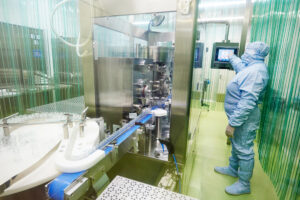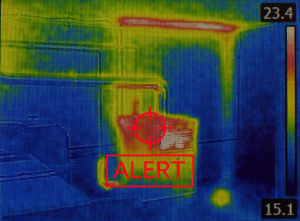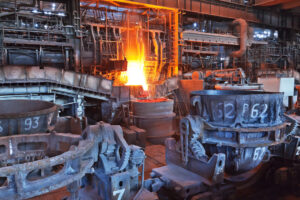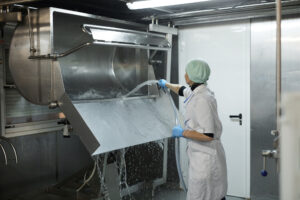There are roughly 18,000 recycling plants across the US and their distribution mirrors population density: there are more such facilities in areas with more population, as expected.
The average American produces 4.9 pounds of waste every day, which leads to a whopping 292 million tons of waste per year across the country. Consequently, recycling facilities are critical to the health and wellbeing of the population, and their importance will only grow in the future.
Recycling facilities’ operations have to run smoothly to prevent incidents and to keep up with the ever-growing demand. This is where video monitoring comes in.
Video Monitoring to Streamline Operations in Your Recycling Facility
The first thing that pops to mind when you say “video monitoring” is security. Any camera system can provide you with security but, in recycling plants, video monitoring can do so much more than that.
There are more than 16 types of recyclable materials that waste management plants have to deal with. This means different equipment, different training procedures, and different processes for each of these materials.
It’s very easy for things to fall through the cracks when you have to manage so many different systems and procedures. Moreover, recycling plants are typically huge facilities—thousands of square feet that need to be monitored. This makes it almost impossible to use human monitoring.
With video monitoring, all you need is a remote or on-site operator, who can:
- Monitor the live feed
- Keep an eye on every piece of machinery to spot, for instance, when a conveyor belt is worn down. This can help avoid both incidents and costly downtime.
- Spot inefficiencies in your processes, for example, the route between where the waste storage area and the waste processing area is too long and can be shortened, thus improving your overall productivity.
- Spot when a piece of equipment works less effectively than normal. It may be time to schedule preemptive maintenance to improve productivity.
- Spot fires (one of the biggest risks in recycling facilities) with the use of thermal cameras before they turn into disasters.
Video Monitoring to Enhance Compliance in Recycling Facilities
Recycling facilities have to adhere to countless rules and laws, both at state and federal level. As environmental laws become stricter all over the world, so will the rules that waste management plants have to abide by.
Breaking environmental laws comes with hefty fines and even facility closure. Video monitoring can help you prove that your recycling facility is compliant. You can simply show the video records to the inspector and make your case.
Video Monitoring Enhances Safety in Recycling Plants
Recycling facilities are harsh working environments. Heavy machinery can cause accidents, while some of the recyclable materials can be toxic to the workers if they are not handled properly.
Through video monitoring, you can examine and review the processes and the way your workers interact with the equipment and the waste. Small glitches and human errors are hard to spot by a human supervisor who’s smack in the middle of the action.
The bird’s-eye-view of a remote operator, on the other hand, is entirely different because it comes with the much-needed holistic perspective.
You can use the video feed in your training sessions or as a starting point to improving your operations and your processes to enhance the safety of your staff.
Moreover, the right video monitoring solution will help you tackle both security and safety at the same time. Security breaches can quickly turn into a safety issue if the intruder mishandles the equipment or the toxic waste.
Once again, a remote operator can easily notice an intruder and alert the police and the on-site personnel, thus preventing both theft and, perhaps, a dangerous accident.
How Do You Choose the Best Cameras for Your Recycling Facility?
The camera system you need depends a lot on the specifics of your recycling facility.
- Is it a high-humidity environment?
- A high-vibration environment?
- Are there significant temperature variations?
- Do you work with flammable materials?
The answers to these questions will dictate whether you need explosion-rated cameras or not, if you need vibration mounts, and many other details.
The only certain thing is that store-bought or commercial cameras will rarely cut it in a recycling facility, especially in its most sensitive areas. While they require a smaller initial investment, non-ruggedized cameras will have a very short lifespan in an industrial setting.
Not sure how to choose the right cameras and accessories for your recycling facility? We get it and we’re here to help. Schedule a free consulting call with our industrial video monitoring experts and we’ll advise you on how to pick the system that will enhance your plant’s operations and match your budget.







